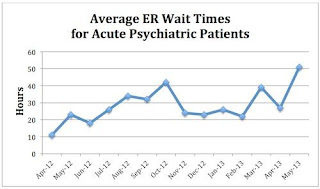THURSDAY, Nov. 30, 2017 (HealthDay News) -- More stringent gun laws might spur a decline in domestic violence murders, new research suggests.
Thirteen states and federal law prohibit people convicted of domestic violence from buying guns. But the study found that states that extended this ban to people convicted of any violent crime had 23 percent fewer domestic violence murders.
The researchers also found that larger reductions in these deaths were seen when gun restriction laws included dating partners in addition to spouses or ex-spouses, and a requirement that abusers turn in their guns.
"The evidence from this study and previous research highly suggests that firearm restrictions work to reduce intimate partner homicides, and that laws need to be comprehensive when we think about populations most at risk for committing intimate partner violence," said study author April Zeoli. She is an associate professor of criminal justice at Michigan State University.
In the study, the researchers analyzed 34 years of data (1980 to 2013) from 45 states. The 29 states with laws restricting guns in domestic violence cases when a restraining order had been issued had 9 percent fewer intimate partner murders, a finding similar to those in previous studies.






